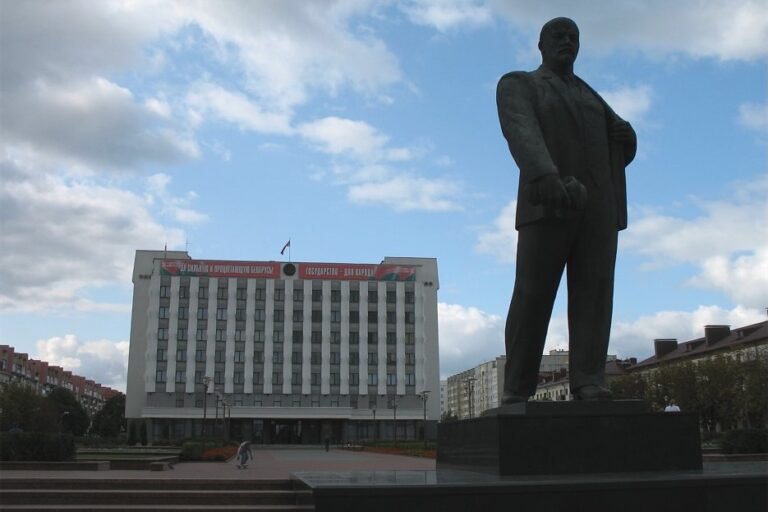Reporters Without Borders deplores the efforts of the Belarusian authorities to stifle political discussion and censor coverage of the parliamentary elections campaign.
UPDATE: Belarus’s illusion of democracy (Index on Censorship, 25 September 2012)
(RSF/IFEX) – 21 September 2012 – As the Belarusian elections approaches, Reporters Without Borders deplores the efforts of the authorities to censor media coverage of the campaign and stifle political discussion.
“The campaign for the elections on 23 September has ended as it began, with the harassment of critical voices. Any attempt to inject a political dimension into the elections, which the authorities would prefer to be seen as a formality, is at best censored, if not violently repressed,” said Reporters Without Borders.
Televised debates, largely pre-recorded for later broadcast, are heavily censored. The crux of the problem is a call for a boycott of the ballot by several opposition parties. The chairwoman of the Central Election Commission, Lidziya Yarmoshyna, announced on 11 September that seven pre-recorded debates would not be broadcast because some of the candidates had used them to call for an election boycott.
Anatol Lyabedzka, leader of the United Civic Party, told Reuters Without Borders that 32 of his party’s candidates had their campaign broadcasts censored on television and radio. The official press refused to publish the campaign statements of 11 candidates, in contravention of the law. Furthermore, he said, most of the UCP candidates had been forced to make changes to their statements after the authorities threatened to ban them from the media.
“Censorship of the boycott appeals is politically motivated and completely illegal,” Lyabedzka said. Section 47 of the electoral code clearly sets out the reasons why a candidate could be refused access to the media and an appeal for a boycott is not among them.
Two days ago, the Belarus Association of Journalists, a partner organization of Reporters Without Borders, submitted its findings after monitoring the campaign between 2 and 15 September. The report concluded: “The state-owned media did not only try to marginalise key actors (in the campaign), i.e. candidates, but also intended to prevent the voters from obtaining information about the candidates’ agendas and block their discussion.”
The official media have tried to depoliticise the election campaign by marginalising candidates and political discussion and concentrating on the technical aspect of the ballot. As a general rule the state media have given the elections a marginal place in their programming. Thus, during the period under study, the news programme “Panarama” on Belarus 1 television devoted 1.88 percent of its coverage to the elections, compared with 2.82 percent for the weather and 14.7 percent for sports news.
Three days ago, seven journalists were roughly questioned in the capital Minsk as they were covering a protest by activists of the opposition Zmena movement. Cameramen Pavel Padabed (BelaPAN news agency) and Alyaksandr Barazenka (Belsat), as well as photographers Syarhey Hryts (Associated Press), Tatsyana Zyankovich, Vasil Fedosenka (Reuters), Dmitry Rudakov and Aleksei Akulov (ZDF) were taken in an unmarked vehicle to a police station, where they were split up. As they were being questioned, an official struck Hryts, breaking his glasses and drawing blood.
The journalists were released about an hour-and-a-half later without charge and without explanation. The police deleted most of the images of the demonstration from their cameras before returning the equipment. The next day, the Zmena demonstrators went on trial in a closed session at the Frunzenski district court in Minsk. The journalists were prevented from talking to the friends and families of the accused.
Reporters Without Borders has also learned that a Moscow correspondent for the German television station ZDF, Anne Gelinek, was refused a visa to travel to Minsk to cover the elections. She was given no explanation for the refusal. Her experience recalls the case of Gesine Dornblüth, a correspondent in Moscow for Deutschlandradio, who was the victim of a similar refusal in August.
Belarus is ranked 168th of 179 countries in the 2011/2012 World Press Freedom index compiled by Reporters Without Borders. It is also figures on the organization’s list of Internet Enemies because of its systematic use of Internet censorship.


